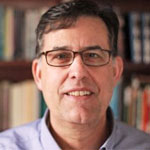Recently, a brother from a small town in the south wrote for advice. He came to Christ in the early nineties. Over the past two years he and his wife embraced reformed (baptistic) theology. But the church they were part of did not. Opposition to their theological convictions has mounted. After moving to their third church, they still feel unsettled. The church they are presently part of preaches Christ, maintains good fellowship among the members, but is certainly not theologically reformed, and even sometime slings a few barbs against Calvinism. The closest reformed congregation is forty-five minutes away. So the brother asked if there might be the possibility of sending someone to plant a church in his community. With this brother’s permission to share it, here’s how I responded, with a few minor changes.
Let me offer a few thoughts.
First, planting a church, especially one that is reformed in doctrine and practice, is a huge challenge. Church planting is demanding, costly financially and emotionally, and a spiritual battle. Added to that, in an area that seems unfriendly toward reformed theology—as is common in the south—it’s an even greater challenge. That’s not to say it is not doable because it certainly is. But it is no quick, easy task. Necessary leadership, core group, supporting church (or churches), resources, finances, meeting space, etc. are required in a church plant. And it is generally helpful to have a fairly good population. Small communities tend to be rather insulated and not as open to new churches starting, especially since everyone knows everyone else. I’d take my hometown as an example. It would be extremely difficult to plant a reformed, baptistic church in my town of 8,000.
Church planting must never be viewed as a matter of convenience. It’s too exhausting and demanding to even consider in that case. Rather we need to plant churches, particularly, where Christ is not preached.
Second, one of the personal challenges to those who come into a new understanding of doctrine is to hold it with patience and great humility. It’s true that not everyone will agree and that some of those who disagree will do so with aggressiveness. Yet Christ calls us to humility, Christlikeness, gentleness, and patience as we work with others. Being a model of the doctrine that we believe is critical. For instance, some young men that I know serve churches where they regularly face the struggle of showing patience to congregations that are not reformed and somewhat hostile to their biblical convictions. They wonderfully model the slow, patient, gentle approach of teaching and living out the gospel so that their congregations can see and hear God’s truth.
Counsel from Calvin, Whitefield, and Wesley
Third, I’d suggest that you consider staying at the church where you are, IF the brother preaches the gospel. That’s what is central. Even John Calvin considered that a church that was weak and inadequate in many ways, IF the gospel was faithfully preached, was still a New Testament church. So work toward receiving that brother’s preaching of Christ. Encourage him in doing so. Pray for him. Beware of having a litmus test every time you go to church. To do so will not allow you to profit from the preaching of the Word. If the brother does not preach the gospel then go where you find Christ preached. If that means giving up some things personally in order to have a little more gas money for the distance, then do it. We have several families who drive 30–60 minutes to our services each Sunday. It’s difficult to make that drive, I’m sure, but they have found that it is worth the extra time and effort and finances. If that’s not possible then stay with a church where you hear Christ preached faithfully, even if there are disagreements on some details of doctrine. You can kindly and wisely teach your family correctly without bashing the one who preaches.
You will do well to consider the way that George Whitefield (a Calvinist) honored John Wesley (an Arminian) and vice versa. When asked if he would see Wesley in heaven, Whitefield said, oh no, because he’ll be so close to the throne of Christ, and I so far back, that I will likely not see him. Wesley, on his part, preached at Whitefield’s funeral and duly honored him and their friendship. These guys had strong doctrinal disagreements, but each respected the other because of his love for Christ, the gospel, and the church. There are things that we can tolerate in order to be with the body of Christ. Gathering with Christ’s body each week and being accountable to others in the body is critical and essential to our maturing in Christ. One cannot read Ephesians four and conclude otherwise. Is it ideal to be in a church that doesn’t have it all together? Of course not, but few things are ideal. Every church, however sound doctrinally, has its issues that it deals with. If the church where you attend has gracious, kind followers of Christ, it is better to have your kids in that kind of atmosphere, rather than one where good doctrine is preached to a bunch of grumbling, prideful people. I hope that you see what I mean. Ideally, it would be great to attend a church where the doctrines of grace are preached and everyone walks in unity. But that doesn’t always happen. Christ is shaping His church. He is reforming us in our understanding of truth and its application. He’s growing and sanctifying us. Sometimes that sanctification is helped by being where things are not quite where they might should be, so that we might be part of the solution by our holy living, godly walks, faithfulness in training our family, supportiveness of those ministering the gospel, and our faithful gospel outreach.
You will never know the impact that you can have on that pastor by your supportiveness and prayers. Many, many pastors grow in their theological convictions and intensify in biblical preaching because a few of their people have been kind, gentle, and prayerful for them. Perhaps that’s what the Lord has for you.
I know that what I’ve written may not provide everything that you’re looking for, but I hope that you will consider what I’m saying.





















